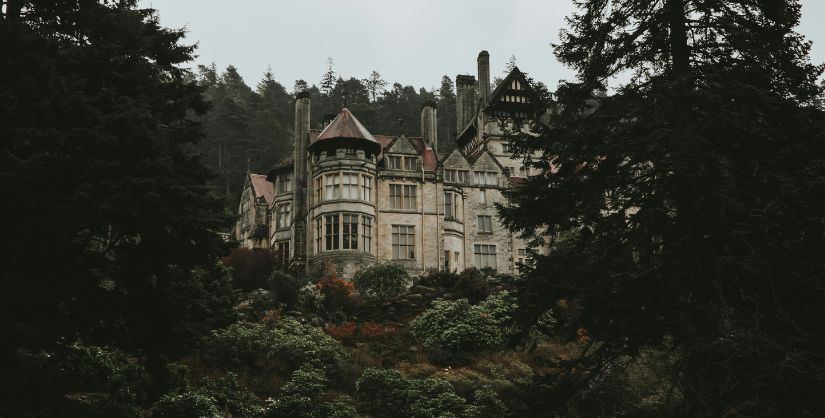Shirley Jackson's The Haunting of Hill House isn't your typical ghost story. It chills you not with jump scares, but with a creeping sense of unease. It lingers long after the final page. Jackson was a master of psychological horror. She uses the novel to build suspense that will stay with you. So, how does she do it? Let's learn from lessons from Hill House.
The secrets of Hill House
Shirley Jackson's 1959 novel, The Haunting of Hill House, stands as a cornerstone of psychological horror. It was a finalist for the National Book Award. Since, it has captivated readers with its unsettling atmosphere. It's stood the test of time with its exploration of the human psyche. The novel's origins are as intriguing as its narrative. It's inspired by accounts of 19th-century psychic researchers. Jackson found humour in their "dry reports." She noted that the focus was on the researchers themselves rather than the hauntings. This sparked her desire to create a story that explored the impact of a haunted house on a group of individuals. Particularly, the vulnerabilities it might expose.
In rare interviews, Jackson remained coy about the true nature of the hauntings in Hill House. This leaves readers to grapple with the ambiguity. To question whether the house itself is truly malevolent or simply a reflection of the characters' inner turmoil. This deliberate ambiguity is a hallmark of her genius. It allows the novel to transcend the genre. It delves into profound questions about fear, perception, and the nature of reality.
1 | The power of suggestion
Jackson excels at creating a chilling atmosphere. She does this through suggestions. There are few explicit descriptions. We hear whispers, banging on the doors, even giggling. We don’t witness a full-blown apparition. This ambiguity allows our imaginations to run wild. It conjures up horrors far worse than anything Jackson could describe.
2 | Unreliable narration
The story unfolds through the eyes of Eleanor. She's a vulnerable and increasingly isolated character. As the house preys on her sanity, the reader begins to question Eleanor's perceptions. Are the hauntings real? Or a manifestation of her mental state? This uncertainty keeps us guessing. It heightens the tension.
3 | Focus on the characters
The Haunting of Hill House isn't just about a scary house. It's about the characters. It's about how they react to the unsettling events. Jackson expertly explores the psychological toll the house takes on each visitor. Especially Eleanor. By caring about the characters, we become more invested in their safety. This makes the suspense all the more palpable.
4 | Setting the scene
Hill House itself is a character. Jackson meticulously crafts its decaying grandeur. Its drafty corridors and foreboding portraits. This evocative setting becomes a living entity. It adds another layer of unease to the narrative.
5 | Less is more
Jackson avoids excessive exposition. She prefers to let the story unfold organically. This allows for a sense of mystery to permeate the narrative. It keeps the reader constantly on edge. We're eager to uncover the secrets of Hill House.
Shirley Jackson crafts a chilling masterpiece with these techniques. It endures as a testament to the power of suspense. A frightened mind is a fertile ground for suspense.
Shirley Jackson quotes about writing
Shirley Jackson herself offered valuable insights into the craft of writing. She once declared:
"The very nicest thing about being a writer is that you can afford to indulge yourself endlessly with oddness, and nobody can really do anything about it, as long as you keep writing and kind of using it up, as it were."
This playful embrace of the strange resonates throughout her work.
She also emphasised the writer's constant engagement with the world. She stated:
"I cannot find any patience for those people who believe that you start writing when you sit down at your desk and pick up your pen and finish writing when you put down your pen again; a writer is always writing."
This offers a glimpse into Jackson's creative process, highlighting her commitment to both exploration and meticulous observation, qualities that undoubtedly fueled the chilling suspense of The Haunting of Hill House.
If you liked Hill House, you’ll enjoy…
Beyond Hill House, Jackson explored similar themes in other works. Her short story collection, The Lottery and Other Stories, features chilling tales like ‘The Witchcraft of Salem Village’ and ‘The Lovely House,’ which delve into the darkness lurking beneath the veneer of seemingly ordinary settings.
Her unfinished novel, Come Along With Me, hinted at a continued fascination with the psychological effects of domestic spaces. Though details are scarce, the fragmentary manuscript suggests a story exploring a woman's descent into madness within the confines of a mysterious house. These explorations, both completed and unfulfilled, solidify Jackson's position as a master of both the unsettling and familiar. It's an important reminder that the greatest horrors often reside not in the shadows, but within ourselves.


